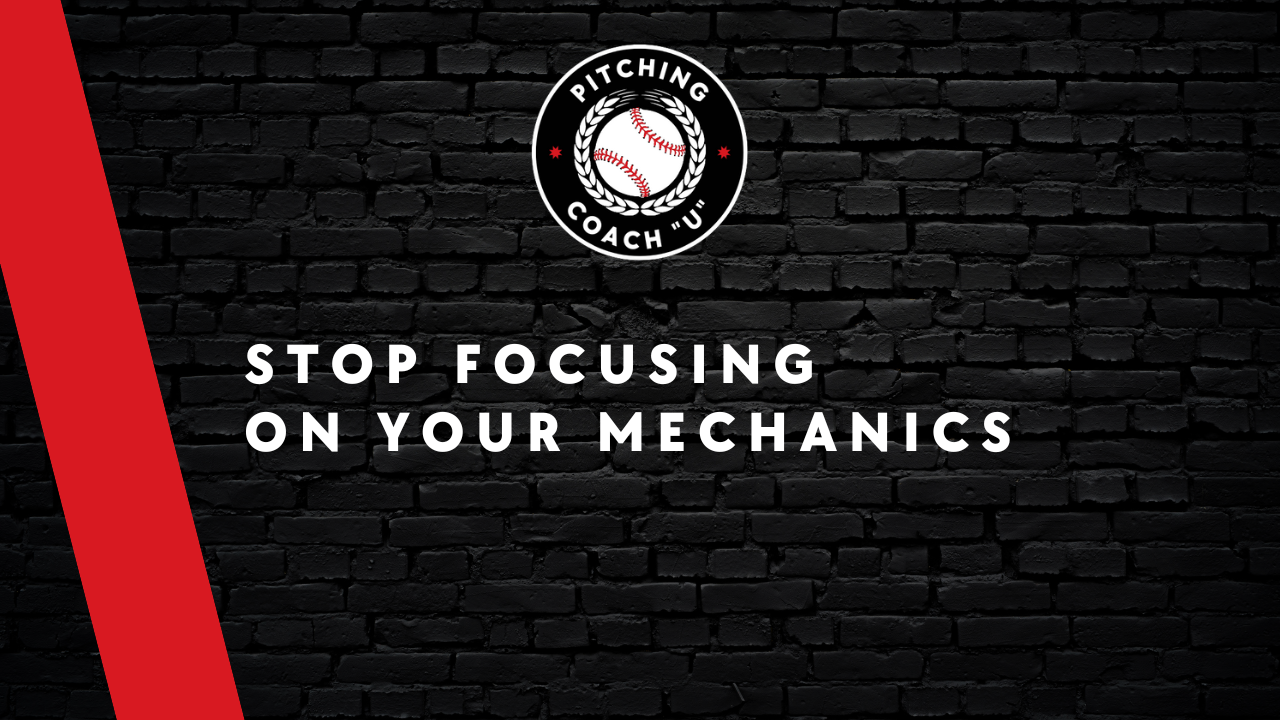
MMV #024: How to Increase First Pitch Strikes
Jun 12, 2023
We all know how important the mental game is, but how many of us practice it?
Alan Jaeger has an incredible resource on the mental game.
Check out his Mental Warrior Program to truly take your game to the next level.
Read time: 3 minutes
First pitch strikes set the tone for the at bat.
1 pitch can completely change everything.
By the numbers:
Average FPS at the D1 level is 58%.
Average FPS at the MLB level is 61%.
AFTER 0-1:
K - 30% at both levels
BB - 5% MLB | 6% D1
AFTER 1-0:
K - 19% MLB | 17% D1
BB - 14% MLB | 19% D1
Regardless of the level, a first pitch strike DRAMATICALLY changes the results of the at bat.
Now, you can still get ahead and have a good outcome despite throwing a first pitch ball.
First pitch strikes just increase the probability of early contact or getting to 2 strikes.
Ball in play on <4 pitches or getting to 0-2/1-2 counts:
AFTER 0-1:
MLB - 86%
D1 - 84%
AFTER 1-0:
MLB - 49%
D1 - 44%
Night and day difference!
Who were the best at first pitch strikes in 2022?
- Ross Stripling - 70%
- Aaron Nola - 70%
- Patrick Corbin - 69%
- Clayton Kershaw - 69%
- Drew Smyly - 69%
The highest walk rate out of that group was 6.9%.
Now, it's easy to say first pitch strikes are good. No pitcher is trying to throw a ball.
But how do you improve it?
There are 3 strategies to improve first pitch strikes:
- Pitch usage
-
Catcher set up/target
-
Command training
1. Pitch Usage
The easiest thing to change is usage.
What 2 pitches do you throw for a strike the most?
Throw those pitches primarily 0-0.
This will usually be your fastball and a smaller moving breaking ball.
If you are going to throw curveballs 0-0, make sure you can land it in zone.
Curveballs have the lowest swing% out of any pitch.
2. Catcher set up/target
You should be trying to throw the ball over the big part of the plate early.
Why?
Hitters don’t swing enough and it gives you the biggest margin for error.
Have the catcher set up middle and give you a glove target where you want your starting point to be.
3. Command training
Every pitcher should have some form of command training in their program.
This could include differential balls, small targets, competitions, etc.
There are many ways to go about this, but here are two examples.
Example #1: Differentials for fastball command
+5, Regular, -5, Regular x3-4 times through.
Pitches can be thrown to a catcher or a specific target.
Track how many are in zone.
Example #2: 3 pitch simulated AB’s with batter standing in
Before every batter, perform 3 squat jumps to elevate heart rate.
Track how many times you get to 0-2 or 1-2.
Importance of FPS and how to improve it RECAP:
- The first pitch dramatically changes the AB
- FPS increases chances of staying ahead
- Throw best strike pitches early
- Have catcher setup middle
- Train command in pens
That's all for this week.
See you next Monday.
Whenever you're ready, there are 2 ways we can help you:
1. If you are looking for something more hands on, we'd recommend starting with one of our affordable services:
→ Remote Training: A personalized throwing and lifting plan to help you reach your goals.
→ Mechanical Analysis: We'll analyze your delivery with 21 checkpoints and give you an actionable plan to improve.
2. Join 14,000+ followers for daily threads and tweets on pitching development.
Pitching Coach "U"
The Monday Mound Visit
Teaching coaches how to develop the complete pitcher. Actionable advice delivered to your inbox every Monday.



